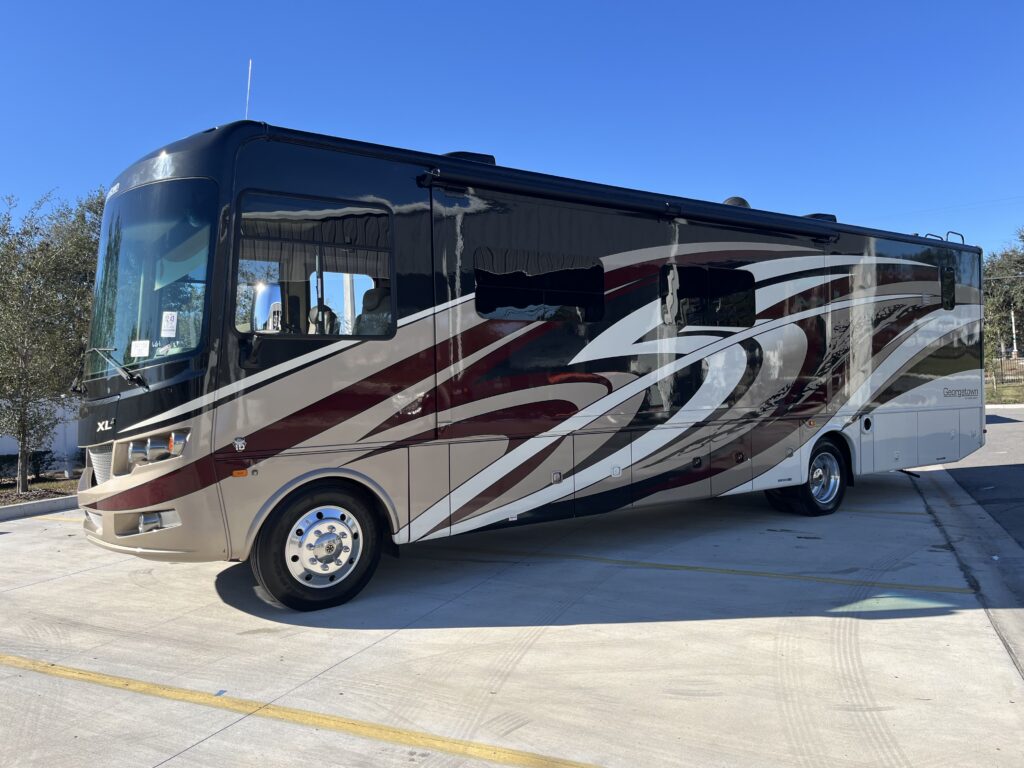Buying an RV is a major purchase, whether you’re a retiree ready for occasional travel and relaxation or a young professional family committed to the full-time RVing lifestyle and working from the road. In most cases, financing a new or used RV is necessary, unless you’ve saved up enough money to pay for the rig in cash. And if that’s the case, bravo!
If you’re looking for financing to buy your next RV and need tips that will help you get a loan that works best for you, do your homework in advance. This can include:
- Checking your credit score – Just like when you buy a car or a home, you should check your credit score before asking for financing from a bank or credit union. Why? Knowing where your score lands in the spectrum can give you an idea of the types of interest rates for which you might qualify. Typically, a good credit score is considered to be in the mid to high 600s. If your score is in that range or higher, it’s likely that the interest rate on your loan will be lower than if your score is below 600. A higher interest rate will mean that you pay more money over the life of the loan. Additionally, if you have a bad credit score, you may be denied a loan entirely.
- Shopping around for loans – Don’t just jump on the first loan you’re offered. Check with a few banks and credit unions to see which one will offer you the best interest rate and terms. Do keep in mind, however, that each potential creditor will pull your credit report, which can lower your score a little bit each time.
- Budgeting for your payment and other expenses – Before you buy anything, it’s important to consider what type of RV you want to buy (Class A, B, C, travel trailer, toy hauler, etc.) and what the monthly payments for your rig will be. You’ll want to calculate those monthly payments along with your other RV costs, such as maintenance and repairs, gas, storage, insurance, and more. These costs are all in addition to your normal camping or living expenses for things such as food and personal items. It can seem overwhelming to think about all these costs from a budgeting perspective, but if you plan ahead, you won’t purchase more RV than you can afford.
- Saving up to make a large down payment – When you put a good chunk of change down on a new or used RV, in addition to financing the purchase, you can help shorten the life of the loan and the overall amount you’ll owe. This will help free up your funds for other expenses or for savings.
When you follow these tips, you’ll be well informed and properly prepared to purchase a rig that meets your needs.
Want to learn more? Contact us today!







